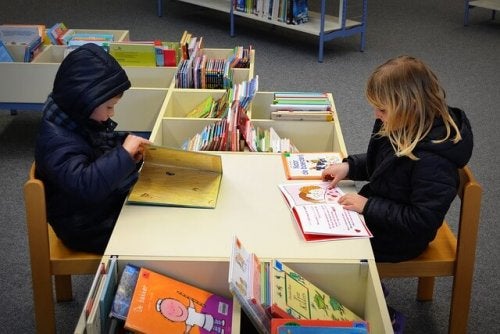Prevent Procrastination from Coming into Your Child's Life

How can we prevent procrastination from coming into our children’s lives? Procrastination is a human behavior disorder that refers to delaying tasks that must be completed immediately.
This pandemic, as some already consider it, also focuses on postponing those situations that for some reason are unpleasant to us.
Similarly, when we evade our responsibilities because they’re too heavy to carry and undertake, we’re inevitably falling into procrastination.
And, if we substitute important tasks, situations, and responsibilities for trivial ones, then we’re procrastinators.
As you may have noticed, this “philosophy”, despite the complicated term, is quite common.
Mom, don’t fall into procrastination
It’s said that procrastination affects us all at some point in our lives, although it’s true that it affects some more than others.
Many of us are used to postponing our duties without taking into account the results of their neglect, even when it affects themselves.
But Mom, don’t put off for tomorrow what you should and can do today.
Don’t fall into procrastination. Convey to your child the significance of not putting off their homework. After all, at some point, they’ll have to do it.
Make your child an adult of tomorrow because they belong to the new generation, and not because they always put off today’s responsibilities for “tomorrow”.
Prevent your child from falling into the bottomless pit of procrastination.
From a young age, instill in them the importance of keeping their promises, cultivating themselves intellectually and emotionally, facing their responsibilities, and always facing their problems.
From now on, teach them to be truly committed to themselves.
Procrastination in learning

Learning is the mental function that consists of the acquisition of knowledge.
It’s the process that’s responsible for the development and implementation of skills.
Through learning, human beings experience observation, assimilation, and reasoning.
The formation of behavior and values, the transformation of skills, and the accumulation of experiences are consequences of learning.
Although animals are born with certain instincts that enable them to climb, feed, walk, swim, hide from predators… depending on the species to which they belong; humans are in constant learning.
That is why giving learning the importance it deserves from the early stages means a lot to the life of a human being.
However, procrastination in learning is gaining ground.
Let us exemplify our opinion:
Many kids today spend their time on the internet with their notebooks laden with unfinished homework behind them.
If the day after tomorrow there’s an exam, they put off studying until tomorrow. Today, they spend their time talking on the phone with their friends.
If they have to turn in a research project within two hours, they still spend a little time finishing watching the movie that they like so much.
To the detriment of humanity and of themselves, some children today think and act this way.
How to prevent procrastination in learning?

Although it’s true that the first years of life are the best ones for developing our children’s mental capacities, learning doesn’t have a specific age. We’re learning throughout our whole lives.
Of course, it’s essential for children to find motivation in what they’re going to learn because this is an important element that facilitates the best appropriation of the subject.
This is what happens with the children we were referring to. Class subjects aren’t as attractive to them as video games, going out with friends, and leisure in general; that’s why they replace them.
Mom, you must know that learning is effective when it produces a lasting change in time, that is, real learning involves processing the subject matter until it becomes knowledge.
Memorizing subject material by heart in order to take a test and forgetting it once it’s over isn’t learning. Or at least it isn’t effective learning.
For all the aforementioned reasons, we invite you to follow our advice and prevent procrastination regarding learning in your child’s life.
- Convince your child that educated people are independent beings. Their knowledge and intelligence make them such individuals.
- Warn them that those who learn today and don’t put off their learning become faster people capable of making good decisions because those decisions will be based on solid foundations and won’t be mere random impulses.
- Let them know that whoever doesn’t postpone their studies and takes advantage of their time in learning is worth the knowledge they have and not for their money, social status, or for being the child of…
- Instruct him on the importance of educating themselves, learning everything they can, researching, training…, let them know that this is the ideal time to do it.
All cited sources were thoroughly reviewed by our team to ensure their quality, reliability, currency, and validity. The bibliography of this article was considered reliable and of academic or scientific accuracy.
- Steel, P. (2017). Procrastinación: Por qué dejamos para mañana lo que podemos hacer hoy. DEBOLS! LLO.
- Bazalar, L. A. C. (2011). Procrastinación académica como predictor del rendimiento académico en jóvenes de educación superior. Temática psicológica, 7(1), 53-62.
- Justo, C. U. D. A. F. (2010). Efectos de un programa de entrenamiento en conciencia plena (mindfulness) en el estado emocional de estudiantes universitarios. Estudios sobre educación, 19, 31-52.
